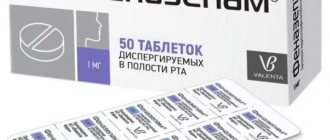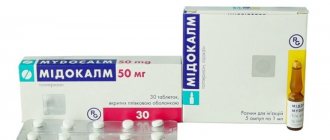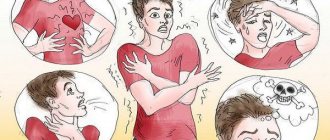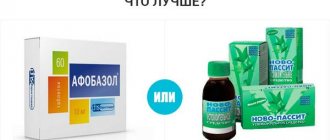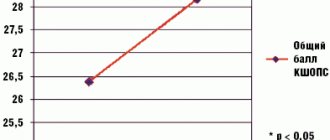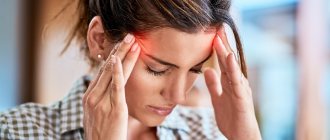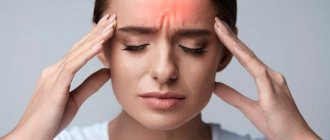Antidepressants are one of the most difficult groups of drugs for pharmaceutical consultation. Often associated with very specific disorders and sold strictly by prescription, they are shrouded in many secrets and speculation. Some patients are afraid of antidepressants, others have too high hopes for them. But both the former and the latter have many questions about how these medications will affect their lives. They ask these questions not only to the attending physician, but also to another person in a white coat - the head of the pharmacy. We have collected answers to the most popular of them in this material to help our readers, if necessary, build a capacious and correct consultation.
Explain in simple terms - how do antidepressants work?
Antidepressants are a group of psychotropic medications that affect the levels of neurotransmitters (they transmit nerve impulses between cells in the human brain), thereby helping to treat depression. We are talking about three hormones: serotonin, dopamine and norepinephrine. According to the prevailing point of view in scientific circles, with depression their concentration noticeably decreases, which is why the interaction between neurons is disrupted. Modern antidepressants help reverse this process, returning the brain to normal functioning. Thanks to this, patients experience the following improvements: improved mood, improved vitality, decreased anxiety and apathy, and normalized sleep and appetite.
Treatment
If you feel that the quality of your psychological life has deteriorated or you see a problem in someone close to you, consult a doctor. Depression must be treated promptly to prevent its progression. It prevents a person from living a full life.
Antidepressants will help cope with depression, anxiety, and relieve weakness and apathy. Therefore, if the doctor, having assessed the condition, prescribes a treatment regimen, you must strictly follow it.
Any specialist will answer the question of whether there is dependence on antidepressants in the negative. And if after therapy and cessation of use the condition worsens, this is not addiction, but perhaps the wrong drug was selected and the disease was not treated. Even after taking pills for several years, a person can always refuse them by following the rules for exiting therapy.
What happens if during treatment the patient stops taking the prescribed drug?
It all depends on the situation. If the withdrawal is abrupt, there is a high risk that the body will not have time to adapt to the new regime, and the side effects will increase exponentially. This is called withdrawal syndrome and can be expressed in different ways. Most often, patients complain of dizziness, headaches, sleep disorders, spasms and tremors in the limbs. There is also a rebound syndrome, in which untimely withdrawal from the drug provokes the return of all the negative symptoms of depression. With gradual withdrawal, such consequences do not occur, so it is extremely important to adhere to the dosage regimen prescribed by the doctor.
Withdrawal syndrome
Many people do not trust such medications because they do not know whether antidepressants are addictive and are afraid that they will have to be on pills for the rest of their lives. This occurs due to misunderstanding of their actions and failure to comply with doctor's instructions when canceling them. You should know that you cannot stop taking it on your own after feeling a little relief, this will lead to the return of depression. The medicine must be taken as a full course, from 4 to 9 months, sometimes longer.
If you abruptly stop taking the drug, the following symptoms appear:
anxiety;- headache and dizziness;
- fatigue,
- painful condition;
- muscle pain:
- sleep disorders;
- nausea;
- flu-like manifestations;
- tremor;
- paresthesia;
- nervousness;
- memory impairment;
- hallucinations.
Duration is from one to two weeks, after which all symptoms disappear . Therefore, the drug must be discontinued with a gradual dose reduction. Symptoms from each group of substances manifest differently, which leads to beliefs that there are antidepressants that cause addiction. Sometimes reducing the dosage does not relieve the withdrawal syndrome, which is accompanied by a long period of mild symptoms.
Are antidepressants dangerous for the body?
As with any medicine, side effects may occur when taking antidepressants. Most often we are talking about drowsiness (and sometimes, on the contrary, insomnia), inhibition of reactions, hypotension. However, given that on the other side of the scale are often the patient’s thoughts about leaving life or causing other harm to himself, this is not regarded as a serious obstacle.
Some antidepressants are contraindicated for heart diseases (arrhythmia, conduction disorders in the myocardium), but there are drugs that are allowed to be taken even by people who have had a heart attack. A number of such drugs cannot be prescribed for pathologies of the kidneys and liver. Knowing the patient’s health characteristics, the doctor selects the most suitable option for him. Therefore, antidepressants can only pose a danger when self-medicated.
Side effects
Different classes of drugs have their own side effects, but there are some common to all groups:
insomnia;- excitation;
- hallucinations;
- manic syndrome;
- lethargy, lethargy;
- drowsiness;
- sexual dysfunction;
- likelihood of suicide.
They can appear both with an overdose and with therapeutic doses. When you stop using it, the condition normalizes and you need to select another drug.
Is it true that once started, depression medications will have to be taken for the rest of your life?
Treatment with antidepressants is not a quick process, and its duration largely depends on the severity of the person’s condition. Typically, the course of taking these drugs lasts at least six months. If no improvement is observed after six months, the doctor may extend the course or change the drug. Therefore, you need to be prepared for the fact that you will have to take antidepressants for quite a long time. However, there is no talk of lifelong treatment: the patient will either begin to recover, and the need for antidepressants will gradually disappear, or will demonstrate resistance to them, and the doctor will choose a different strategy. There is also a WHO recommendation that antidepressants should be taken for at least another 9 months after the symptoms of depression have disappeared.
Literature:
- Pharmacology of antidepressants / I. A. Vinogradova, V. D. Yunash, S. V. Goranskaya, etc.; Ministry of Science and Higher Education of the Russian Federation, Federal State Budgetary Educational Institution of Higher Education "Petrozavodsk State University". — Petrozavodsk: PetrSU Publishing House, 2020. – 36 p.
- Psychotropic drugs: reference book. practicing physician / F. Bochner et al.; scientific ed. rus. ed. Yu. A. Alexandrovsky; lane English A. N. Redkin. - Moscow: Litterra Publishing House, 2006. - 292 p.
- A short reference book on psychopharmacology, pharmacotherapy and mental pathology / Kozlovsky, Vladimir Leonidovich. — St. Petersburg: SpetsLit, 2015
Does taking antidepressants guarantee a complete cure for depression?
Unfortunately no. Often, the causes of depressive disorders lie not in physiology, but in human psychology, so drug therapy has only a temporary effect, which gradually fades away after discontinuation of the drug. Knowing this, doctors usually use antidepressants as part of a comprehensive treatment that also includes psychotherapy sessions. However, some patients only need medication to recover. On the contrary, they don’t help some people. Depression is a very complex disorder, so doctors select their own treatment methods for each specific case.
Do antidepressants affect your sex life?
Strong antidepressants may indeed not have a very good effect on this delicate area of life in both men and women. Among the side effects of some tricyclic drugs is priapism - a prolonged painful erection not associated with sexual desire. More modern medications (MAO inhibitors) in some cases lead to anorgasmia and decreased sexual desire. This effect of antidepressants is considered a side effect, does not occur in everyone and disappears when the drug is discontinued and treatment is adjusted. Therefore, any sexual disorders that occur should be reported to your doctor immediately.
Are antidepressants compatible with alcohol?
During drug treatment of depression, alcohol consumption should be avoided. At the same time, different groups of antidepressants interact with alcohol in different ways. Mixing some (for example, tricyclic antidepressants) with alcohol can lead to serious consequences, including death. More modern drugs are not so dangerous in this regard. But MAO inhibitors, for example, can affect vasoconstriction (and therefore, indirectly, on erection), and can also enhance the effect of strong drinks and provoke, for example, damage to the liver or nervous system. Exactly how the drug interacts with alcohol is always written in the instructions. And in most cases this interaction is undesirable.
Sources
- Lacasse JR, Leo J. Serotonin and depression: a disconnect between the advertisements and the scientific literature // Florida State University College of Social Work, Tallahassee, Florida, United States of America PLoS Med. - 2005. - T. 2, No. 12.
- Rosenbaum JF, Fava M, Hoog SL, et al. Selective serotonin reuptake inhibitor discontinuation syndrome: a randomized clinical trial. Biol Psychiatry 1998 // https://www.uptodate.com/contents/discontinuing-antidepressant-medications-in-adults/abstract/17
- Haddad PM Antidepressant discontinuation syndromes // Drug Safety journal. - 2001. - Vol. 24, no. 3. - P. 183-197. - PMID 11347722.
- American Psychiatric Association. The Truth About Antidepressants // https://www.psychiatry.org/news-room/apa-blogs/apa-blog/2016/03/the-truth-about-antidepressants
- Tarasenko O. A. Side effects of antidepressants // Pharmacist. - 2003. - No. 14. https://www.provisor.com.ua/archive/2003/N14/art_33.php
- WHO Mental Health Program // https://www.who.int/mental_health/mhgap/evidence/depression/q2/ru/
- F Hieronymus et al., Efficacy of selective serotonin reuptake inhibitors in the absence of side effects: a mega-analysis of citalopram and paroxetine in adult depression // Molecular Psychiatry, 2017; doi:10.1038/mp.2017.147
- Rafael Gafoor. Antidepressant utilization and incidence of weight gain during 10 years' follow-up: population-based cohort study // BMJ 2018; 361 https://www.bmj.com/content/361/bmj.K1951
- Megan Brooks. Antidepressants Worsen Sexual Dysfunction and Depression? https://www.medscape.com/viewarticle/870660
- Kucher E. O., Shevchuk M. K., Sivak K. V. Experimental study of the influence of alcohol on the biological effects of antidepressants // Bulletin of St. Petersburg University. – 2010. – Series 11, issue 1. https://vestnik.spbu.ru/pdf10/s11/s11v1_10_S.pdf
Mechanism of action of antidepressants
One of the practically significant classifications of thymoanaleptic drugs in psychiatry is based on the mechanism of action of antidepressants. According to the mechanism of action, antidepressants are divided into three main groups:
- blockers of neuronal monoamine uptake;
- monoamine oxidase inhibitors;
- monoamine receptor agonists.
Rice. 2. The mechanism of action of antidepressants.
Neuronal monoamine uptake inhibitors
Blockers of neuronal uptake of monoamines are divided according to the principle of action into non-selective (inhibitors of the neuronal uptake of serotonin and norepinephrine) and selective (blocking the neuronal uptake of either serotonin or norepinephrine). The mechanism of action of antidepressants of this group is to block the uptake of neurotransmitters in the presynaptic membrane, due to which their level increases. In clinical practice, they are used to treat severe depression, depression with a suicidal and psychotic component.
The mechanism of action of antidepressants from the group of inhibitors of neuronal monoamine uptake is the most studied, with clinically proven effectiveness. Their therapeutic doses have been determined. They have reliable biomarkers that allow assessing the results of therapy.
Antidepressants of this class differ in chemical structure. Depending on the chemical structure, drugs have unique properties and varying side effects. However, non-core actions can also be used for therapeutic purposes.
Inhibitors of neuronal monoamine uptake include SSRIs - modern antidepressants with an improved action profile and easy tolerability. They act on serotonin receptors, increasing its concentration in the synaptic cleft. Each SSRI drug has a secondary therapeutic effect due to the ability to block dopamine and serotonin receptors, 5-HT2C receptors, and muscarinic cholinergic receptors.
Selective serotonin reuptake inhibitors (SSRIs) have broad therapeutic options. They are prescribed for the treatment of neuroses, fears and phobias, panic attacks, obsessive-compulsive disorder (OCD), anorexia, bulimia, post-traumatic stress disorder (PTSD).
Selective norepinephrine reuptake inhibitors (SNRIs) have a pronounced stimulating effect and mild sedation. They are generally more effective than SSRIs in treating severe depression.
Selective serotonin and norepinephrine reuptake inhibitors (SSRIs) include the therapeutic effects of SSRIs and SNRIs and have a “dual action”. They are well tolerated with minimal side effects. The therapeutic profile of SSRIs is comparable to tricyclic antidepressants, so they are prescribed in the treatment of severe psychotic depression with suicidal tendencies.
Selective norepinephrine and dopamine reuptake inhibitors (SNRIs) have a low likelihood of causing a manic or hypomanic phase. SSRIs are first-line drugs in the treatment of bipolar affective disorder (BD), other mood disorders and depression, characterized by changes in activity in the picture.
Monoamine oxidase blockers (MAO)
Monoamine oxidase inhibitors can block the enzyme responsible for the catabolism of monoamines, either non-selectively (MAO-A and MAO-B) or selectively (MAO-A or MAO-B), thereby increasing monoamine levels. Most antidepressants in this group belong to the first generation (MAO-A and MAO-B blockers). In clinical practice, they are used quite rarely due to their high toxicity. Selective monoamine oxidase blockers are the next generation of this group of antidepressants. They are less toxic, better tolerated by patients, and require a gentle diet.
Monoamine receptor agonists
Antidepressants-monoamine receptor agonists are divided into noradrenergic and specific serotonergic (NaSSA), specific serotonergic thymoanaleptics (SSA). Drugs in this group have an improved tolerability profile and virtually no side effects.
The first group refers to modern antidepressants. They are well tolerated and have virtually no side effects. The mechanism of action of antidepressants of this group is to block α2-adrenergic receptors, increasing the level of serotonin and norepinephrine. In addition, their low toxicity is due to the blocking of 5-HT2 and 5-HT3 receptors.
Specific serotonergic antidepressants block serotonin reuptake receptors. By blocking the 5-HT2 receptor, antidepressants of this group are often used to correct the treatment of mood disorders, the clinical picture of which includes a decrease in libido.
Melatonin receptor stimulants
The mechanism of action of antidepressants based on stimulation of MT1 and MT2 melatonin receptors is innovative compared to the mechanisms of other groups of thymoanaleptics. These drugs do not have the side effects characteristic of their predecessors, due to the lack of effects on serotonin receptors (except for the effect on 5-HT2C receptors), dopamine, adrenergic, cholinergic and benzodiazepine receptors, as well as on the reuptake of neurotransmitter monoamines.
Serotonin precursors
The hypothesis that serotonin precursors can have a therapeutic effect in depressive conditions has become the basis for the use of L-tryptophan and 5-hydroxytryptophan both as monotherapy and in combination with antidepressants. There is evidence that these precursors enhance the effect of MAOIs and stimulate the therapeutic effect in conjunction with other antidepressants that act on serotonin receptors.
